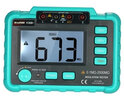Hi all.
I'm looking into the feasibility of me installing a new ground floor ring main in a block built house.
I'm familiar with working with blockwork/plaster so setting in the sockets and cable runs are not an issue, and I'm also familar with placement restrictions and cable zones. It also has a concrete floor, but I'm also comfortable with SDS and channeling out runs between rooms.
My main question is about the feasibility of me doing this work and then calling in an electrician to deactiave the old sockets on the ground floor and wire in the new ones to the consumer unit. I do understand that most may want to have done all the work themselves before signing it off, but I would hope that as everything I've done would be visible and easy to access, there might be less of an issue.
Would like to hear your thoughts on this.
I'm looking into the feasibility of me installing a new ground floor ring main in a block built house.
I'm familiar with working with blockwork/plaster so setting in the sockets and cable runs are not an issue, and I'm also familar with placement restrictions and cable zones. It also has a concrete floor, but I'm also comfortable with SDS and channeling out runs between rooms.
My main question is about the feasibility of me doing this work and then calling in an electrician to deactiave the old sockets on the ground floor and wire in the new ones to the consumer unit. I do understand that most may want to have done all the work themselves before signing it off, but I would hope that as everything I've done would be visible and easy to access, there might be less of an issue.
Would like to hear your thoughts on this.



